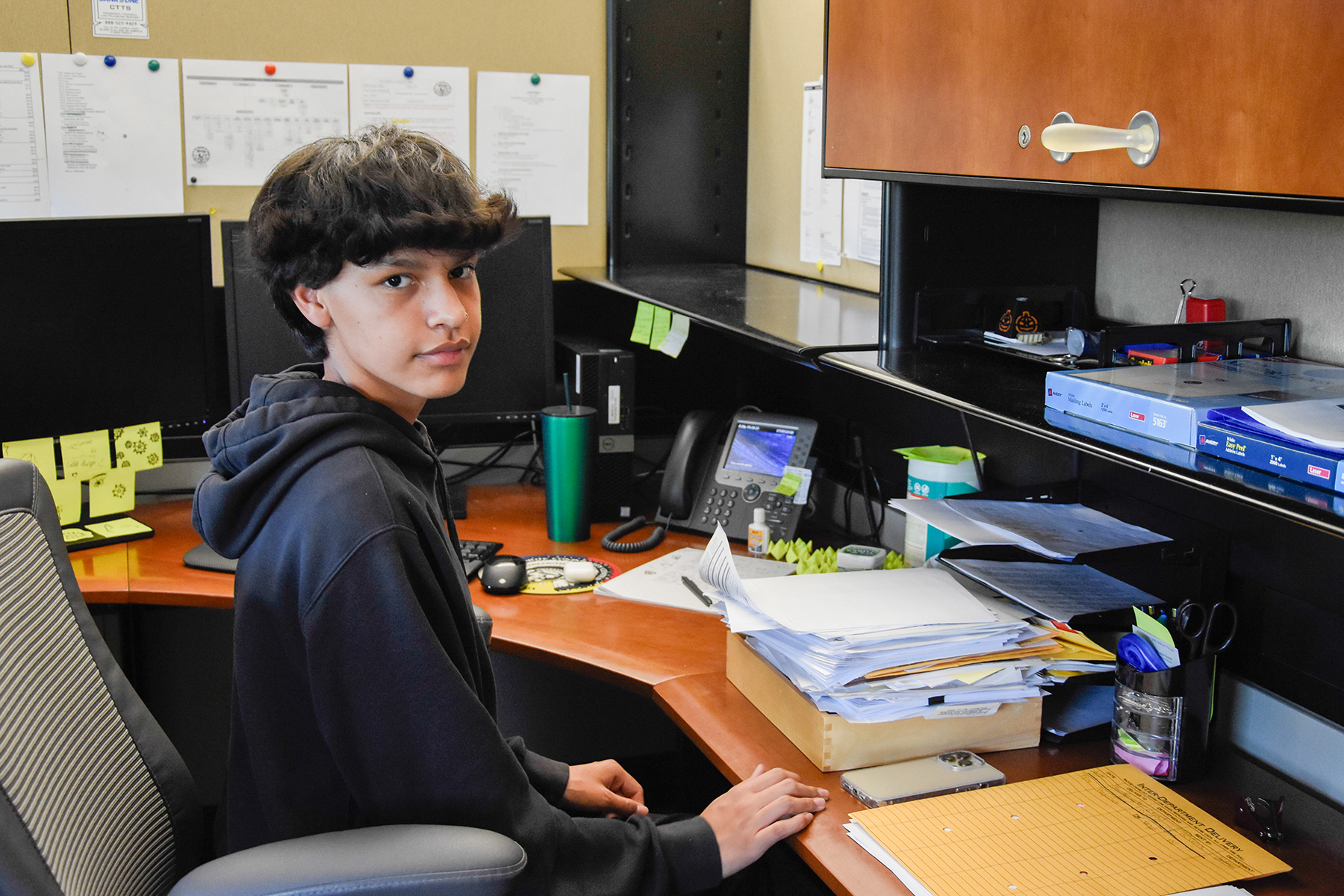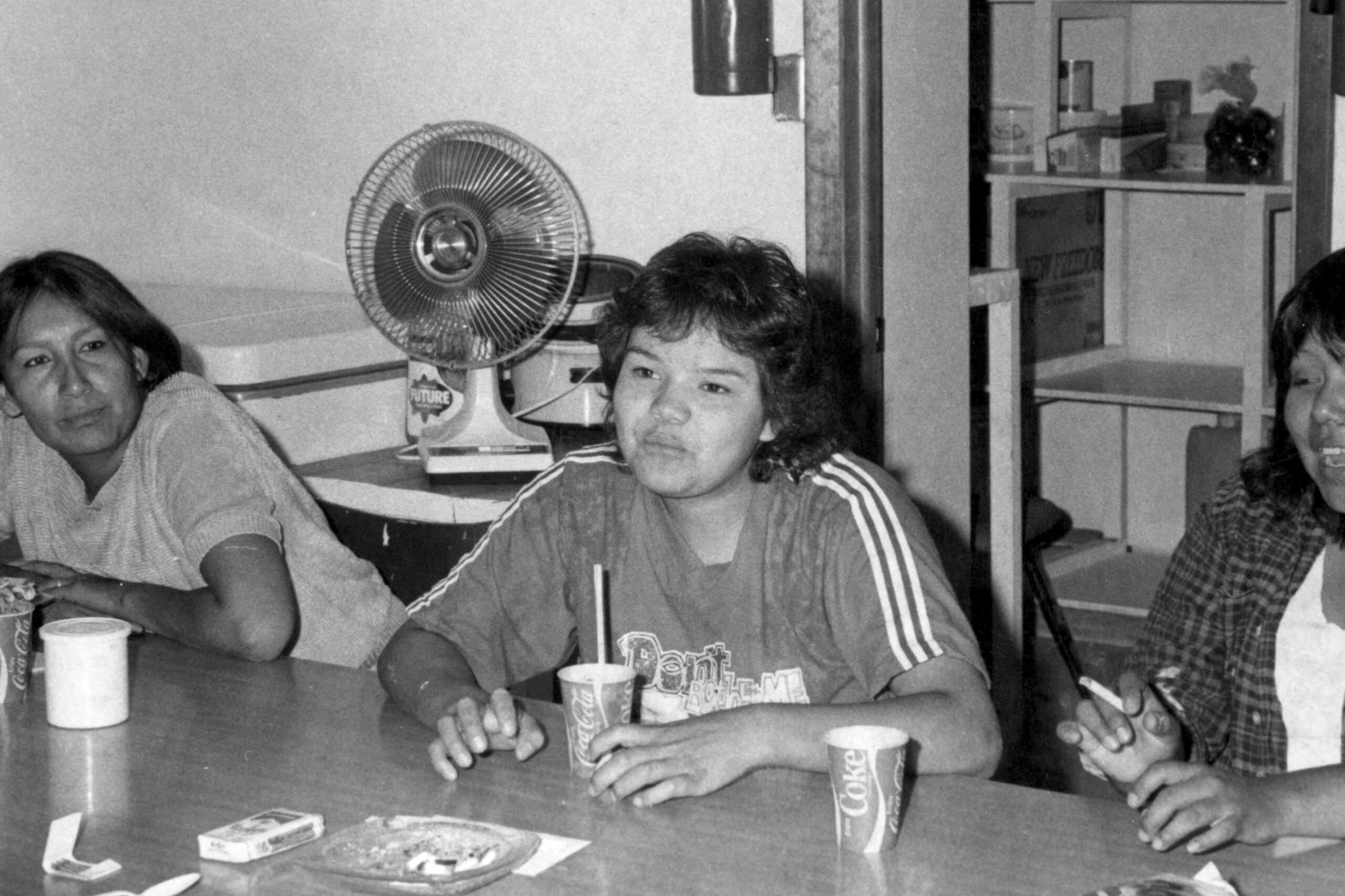Reflections of the YEP
Since the early days, the Southern Ute Tribe has seen tribal youth and first descendants work in different positions in the tribal organization; many of whom were a part of the program get hired into bigger positions after high school or college.
In 1977/78, TERO Division Head and Southern Ute tribal elder, Hilda Burch, was one of the many tribal members who applied to the program, originally called the Youth Job Conservation (YJC). Burch worked with a department that would later become the Forestry Division. Her roles were to build fencing, clear brush and help maintain outside yards and areas around the reservation. The youth in her age group were able to choose if they wanted to work for the YJC, or summer recreation. If participants worked with the summer recreation, they could choose jobs in various areas including fencing, lifeguards, umpires, working with the Sky Ute Downs, or Wildlife and going out to help with Lake Capote and Scott’s Pond. Unlike today, there were not many office jobs available for those students participating.
“We didn’t have technology back in the day, it was all hands-on mechanical work for us youth,” Burch said. “We had to work to support our families and what we wanted, we had to save up money for that, for our own stuff.”
As the program developed and grew, the Youth Job Conservation was renamed to Job Training Partnership Act (JTPA) under the Southern Ute Community Actions Program (SUCAP) in the late 1990’s, early 2000’s. Dustin Weaver, who is the overall coordinator for the YEP program today, told of his experience from his time with the Job Training Partnership Act and what jobs he worked at. “I was fifteen, sixteen the time. I had a good experience. Not only did I get the office job experience, I got to learn the job of the Natural Resources in the area and around the reservation,” Weaver explained. Latitia Taylor and Eloise Weaver were his supervisors while he worked at the Natural Resources Department, and he also worked with Custom Farms where Leonora Burch was his supervisor.
Weaver has been the coordinator for the Youth Employment Program since 2019 and he oversees the entire program. Since 2019, Weaver has seen the youth have better organization and professionalism with the ones who have gone into clerical work. “The program since I’ve been here has helped the youth come out of their shells. Those who are shy and standoffish are now more talkative,” Weaver stated. As the years go by, youth who turn 14 years old and are able to apply for the YEP program are encouraged to do so. “It’s your page to make the leap and try it. Even if it is your first time your off put, it will help you in the end with future job applications.”
Southern Ute Community Actions Program (SUCAP) had the program until 2013, that’s when the Southern Ute Education Department took over and renamed the program the Youth Employment Program (YEP) as we know it today. Tribal member Lylene Scott was the Southern Ute and Youth Employment Coordinator during this time and oversaw the program. The YEP program had added more trainings to help the tribal youth learn about how jobs worked.
“My second job I applied for and got was as a docent working at the Southern Ute Cultural Center and Museum in 2010,” Southern Ute tribal member Fabian Martinez said. “It was the first year of the museum was reopened in its new facility. I focused on learning more of the history of the Southern Ute Tribe and doing the tours for people who would come visit. It helped lay down the foundation of my professional career.”
Every Friday, the youth employees were scheduled to do mandatory trainings that showed them how to write resumes and emails, conduct their own interviews, learn Ute history, visit and tour different spots around the Southern Ute Reservation such as the Growth Fund, Pagosa Junction, La Plata Animas project before it became Lake Nighthorse in Durango, Colo., before they were able to receive their weekly checks. “I learned how to dress, answer phones, write emails professionally. It all came from the mandatory Friday trainings we had to attend,” Martinez explained.
Burch who has been supervisor of the program for many years explained what she would like to see in the future with the program. “I’d like to see more youth starting at the age of 14 years old, they’ll have more of a career path, try to get them interested in other areas, something they can look forward too as the Tribe won’t always be able to provide for you,” Burch said.
Dustin Weaver said the Tribal Education Department plans on keeping the YEP program going every summer for the youth. Starting in the summer of 2024, the way they recruit, and hire will be restructured. If anyone has any questions in regard to the YEP program they are encouraged to call or email Dustin Weaver at dweaver@southernute-nsn.gov or 970-563-2786.




